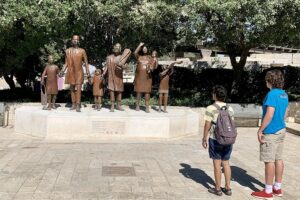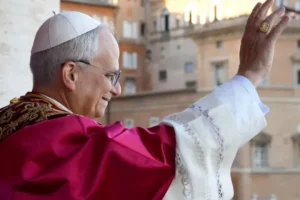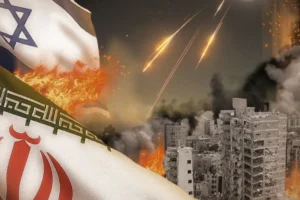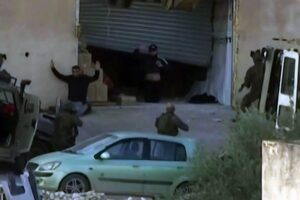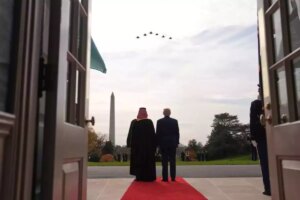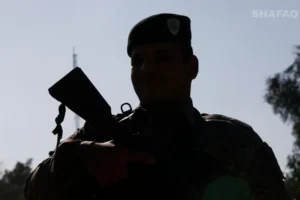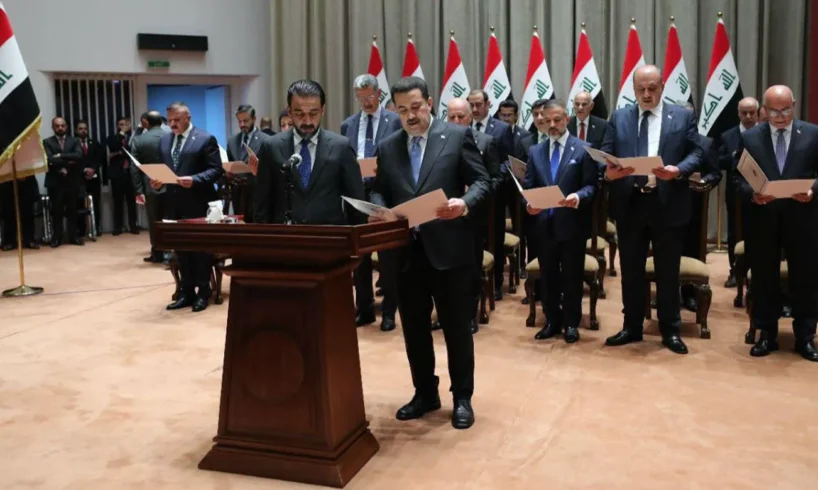
Shafaq News
Prime Minister Mohammed Shia al-Sudani
approaches Iraq’s November 2025 parliamentary elections carrying both credit
and criticism. Nearly three years into his tenure, he has brought a measure of
stability and cautious diplomacy to a country long accustomed to instability,
yet frustrations persist over corruption, public spending, and slow reform.
Supporters hail him as one of Iraq’s most
pragmatic leaders since 2003, steering the country through regional tensions
and reviving long-stalled projects. Detractors, however, view his government as
burdened by bureaucracy and political compromise, where growth has yet to reach
the lives of ordinary Iraqis.
Read more: Baghdad: Ground zero in the battle for Iraq’s Parliament
Al-Maliki’s Rival
Al-Sudani began his political career in the
Islamic Dawa Party, led by former Prime Minister Nouri al-Maliki, before
breaking away to form the Al-Furatain Movement in January 2019. His party won
one seat — his own — in the 2021 elections.
He rose to the premiership through a
compromise backed by both Iran and the United States and was nominated by the
Coordination Framework (CF), a predominantly Shiite alliance. Yet divisions
within that bloc soon emerged. Figures such as Ammar al-Hakim and his Wisdom
Movement (Tayyar al-Hikma) have leaned toward supporting him, while al-Maliki
and some Iran-aligned factions like Asaib Ahl al-Haq remain skeptical.
Al-Sudani was also backed by the State
Administration Coalition (SAC) — a broader alliance uniting key Shiite, Sunni,
and Kurdish forces. He now plans to lead an electoral list in Baghdad that will
place him in direct competition with al-Maliki, a race expected to be one of
the fiercest within Iraq’s Shiite political camp.
Read more: Iraq’s 2025 Elections: A mix of political realignment and fragile stability
Stability Pays
Speaking to Shafaq News, political analyst
Ali al-Baydar views the government as successful in achieving numerous goals,
particularly in foreign relations and in restoring balance to Iraq’s regional
diplomacy, alongside a degree of internal stability.
He observed that the administration “repaired
trust between citizens and state institutions and could be among the best since
2003,” noting that the achievements of al-Sudani’s cabinet will pressure any
successor to match its performance.
Under al-Sudani, the government oversaw the
rehabilitation of more than 1,600 stalled projects across Baghdad and other
provinces, ranging from roadworks and electricity upgrades to industrial
infrastructure.
It also partially activated operations at the
Grand Faw Port, expanded logistical routes, reduced gasoline imports through
higher domestic output, and restored railway lines for grain transport —
including the reopening of Umm Qasr’s silo after a 14-year hiatus.
Political commentator Mujashaa al-Tamimi
credited al-Sudani with maintaining relative political, security, and service
stability and for “showing skill in managing internal and regional balances.”
Yet he cautioned that breakthroughs in key sectors such as services,
corruption, and economic diversification remain limited.
“The administrative and organizational
improvements will have little meaning if they don’t translate into tangible
improvements in people’s lives,” al-Tamimi remarked, describing the next phase
as “a real test of promises — and of any government’s capacity to move from
crisis management to institution-building.”
Supporters also highlight al-Sudani’s
handling of the June 2025 Iran-Israel conflict, known as the “Twelve-Day War,”
as a major accomplishment. While Iraq faced accusations that some factions were
preparing for direct involvement, al-Sudani maintained a policy of careful
neutrality that kept the conflict from spilling across its borders.
That balancing act, they argue, demonstrated
a commitment to keeping Iraq out of neighboring disputes — a principle that
delivered relative calm at a time of heightened pressure from competing
regional and media forces.
Read more: CF on the brink: Disputes divide Iraqi bloc
Failing Grades
Aqil al-Rudaini, a member of former Prime
Minister Haider al-Abadi’s Victory (Al-Nasr) Alliance, acknowledged to shafaq
News the administration’s “success in reviving suspended projects, improving
infrastructure, investing in gas, and advancing work at the Development Road
project,” while also earning regional and international
goodwill.
Still, al-Rudaini did not spare criticism,
pointing to “unjustified hiring’’ decisions that strained the budget — adding
more than a million public-sector jobs — and weak results in combating
corruption and financial violations.
He also underlined that political compromises
and aspirations for a second term had “affected performance, leading to
unstudied project allocations and privileges,’’ for which the government bears
both political and ethical responsibility.
Aqil al-Fatlawi, spokesperson for the State
of Law Coalition — also headed by Nouri al-Maliki — was more scathing, arguing
that billions were spent without tangible improvement for citizens, while poor
planning and traffic congestion persisted.
‘’This administration had already passed on
financially problematic projects to the next government,” he warned.
Al-Fatlawi added that many within the
Coordination Framework oppose extending al-Sudani’s mandate, citing the
government’s “failure to secure Iraq’s water rights, particularly from Turkiye
— a lapse that hurt farmers and agricultural output.”
He maintained that the prime minister’s
foreign visits were “largely ceremonial,’’ producing few concrete benefits for
Iraqis, and concluded that the political, service, and economic record has not
met public expectations.
Former lawmaker Razzaq al-Haidari of the Badr
Organization, led by Hadi al-Amiri, shared similar doubts, asserting that the
government stands between praise and blame, but the on-the-ground reality,
especially in the southern provinces, shows near-total infrastructure collapse
and unprecedented financial and administrative corruption.
He criticized the absence of parliamentary
oversight after the speaker’s post was left vacant for more than a year,
arguing that “no government can function efficiently without scrutiny.”
Al-Haidari also pointed to the severe water
shortage, which he noted had forced “hundreds of thousands of rural families to
migrate to cities,” warning that the absence of a winter agricultural season
for the first time in Iraq’s history marked a serious setback threatening food
security.
Despite increased agricultural subsidies —
including a 50% rise in fertilizer support — Iraq’s water reserves have dropped
to their lowest level in 80 years, sharply reducing harvests of grain,
vegetables, and fruit.
As Iraq moves toward its November 2025 vote,
al-Sudani’s record will face its final test — not in speeches or statistics,
but at the ballot box, where voters will determine whether stability and
caution outweigh frustration over the pace of change.
Read more: Iraq’s Shiite factions: a landscape of division
Written and edited by Shafaq News staff.
